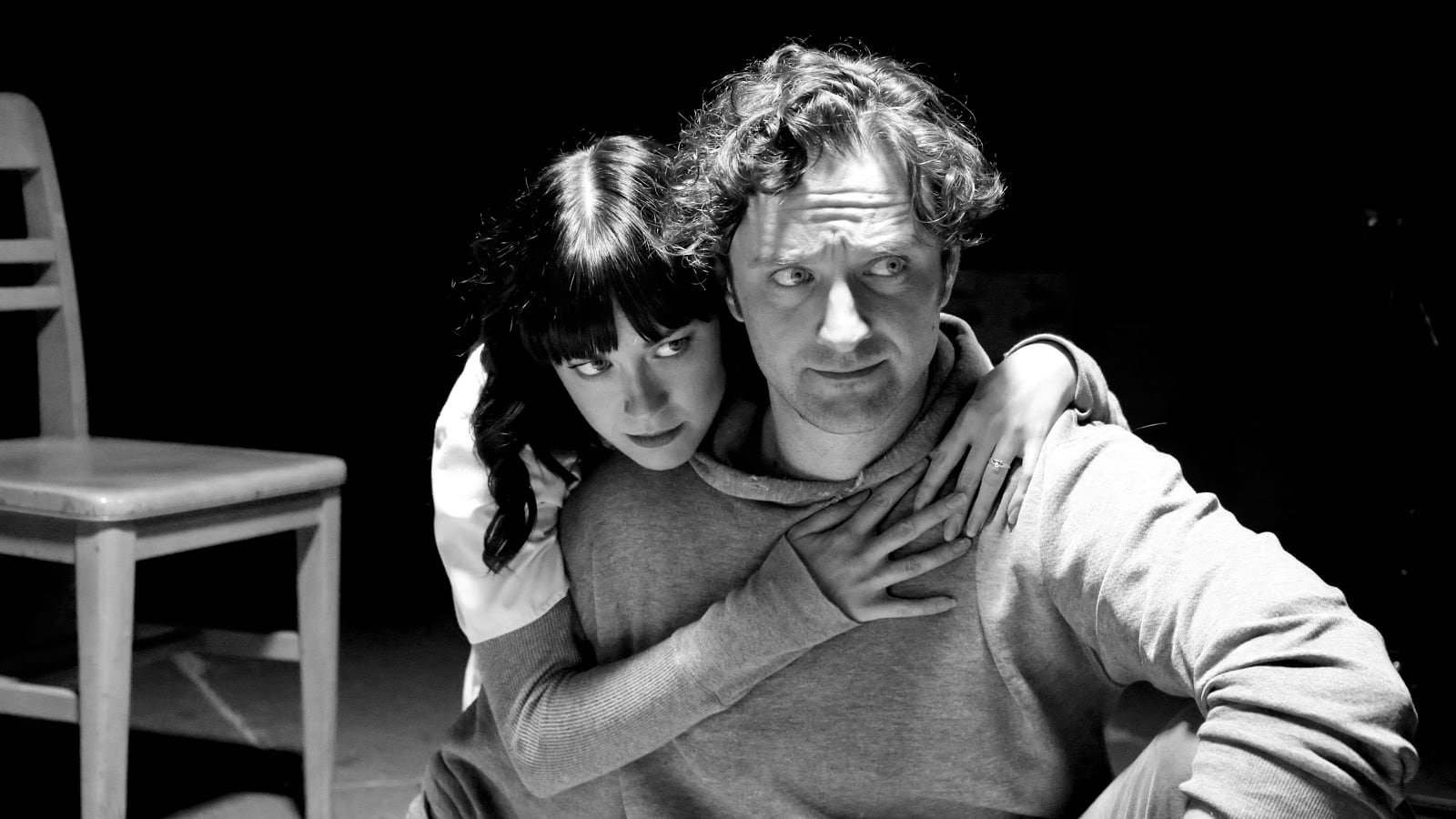Hammer in hand, duct tape on wrists, interrogation lighting set to "retinal scorch"—the single-set, single-night thriller Black Pool takes an unexpected turn in its opening scenes. A captor presses "play" on his iPod mini and dances a wild jig before a terrified man he's bound to a chair.
It's a clever tension tactic within Portland director Dustin Morrow's new feature, one that eludes excessive violence in this story of 20th century Irish street war confined in a contemporary American basement. Even though Michael the raging dancer (Tom Walton) seems fully set on harming the captured man he believes murdered his father in Dublin three decades before, writer-director Morrow wanted to avoid making torture the focus of the film. Then, there's a historical motivator for Christian's windmilling demonstration set to furious Celtic punk.
"Marching in Northern Ireland is a very big deal," says Morrow, a Portland State University film professor and the Emmy Award-winning director of several features, documentaries and shorts. "Both Protestants and Catholics have these marches with guns and flags through each other's neighborhoods, still today. It's a performance in front of the guy you're against, a peacock parading around and letting you know, 'I'm still here and I'm still tough.'"
Michael's dance is intercut with footage of 1960s Irish protests, the beginnings of the three-decade (or more, depending on whom you ask) conflict euphemistically dubbed "The Troubles." The juxtaposition with documentary material only renders Morrow's cat-and-mouse story more claustrophobic. What was once public outrage now festers in a cellar.
"James Joyce used to say that Ireland was a nation that conferred honor only on those who left it," Morrow says. "So what does that mean if you love home, and want to be home, but you can't?"
Granted, Morrow is coming at this topic from an American perspective, albeit with personal connections. The rural Illinois-born filmmaker became increasingly interested in his Irish heritage as a young man and even found his family's immigration story stemmed from a pair of Irish and English ancestors worried their marriage might not survive the old country. Then, there's Morrow the film scholar, who had specific designs for this, his fifth feature, as a minimalist experiment in storytelling—a style that stemmed more from admiring Kelly Reichardt (Wendy and Lucy, Meek's Cutoff) and Krzysztof Kieslowski (the Three Colours trilogy) movies more than piggybacking on Jim Sheridan or Neil Jordan's sweeping Hollywood tales of the Troubles.
"I very much wanted to devote all my attention to working with actors," Morrow says of his film's black-and-white visuals and intense close-ups. "This is where the professor part of me comes in: Everything has to be a learning experience. And I hadn't had that experience before of making the faces of the actors into the visual landscape of the movie."
Those actors, though convincingly Irish to the layperson, are veteran Portland performers as committed to the coiled, microbudget drama as Morrow. Walton plays Michael with abandon, though Morrow notes he deliberately speaks with a flattened Irish accent to imply an uneasy American assimilation. By contrast, the man taped to the chair professing innocence in a rich Belfast baritone is Todd Van Voris, known to Morrow and others in the local acting community as "Todd Van Voice."
Though Black Pool seems fit for the arthouse-genre crowd and is on track for a DVD and streaming release in early 2020, the film's themes are gnarlier still than its kidnapping or carceral ambience. When the characters aren't white-knuckling it through the basement standoff, we're whisked through footage of the Troubles or privy to the futile pillow talk of Michael and his wife, Emma (Amber Stonebraker), as she cheers on her husband's alcohol-stunted job search.
These marital conversations—interspersed between the hammer, duct-tape and staring contests—point to some irreconcilable differences in American and Irish communication tendencies, Morrow says. Emma tries her best career counseling on a man obsessed with the molding power of his father's murder. His is the psychology of a would-be superhero in a more fantastical context. Here, though, it's a cavern of self-destruction, and Emma's encouragement resembles someone trying lovingly to remove a tumor with a pair of drugstore tweezers. Rest assured, we'll return to that basement soon enough.
SEE IT: Director Dustin Morrow attends a screening of Black Pool at NW Film Center's Whitsell Auditorium, 1219 SW Park Ave., nwfilm.org, on Thursday, Aug. 1. 7 pm. $5-$10.
